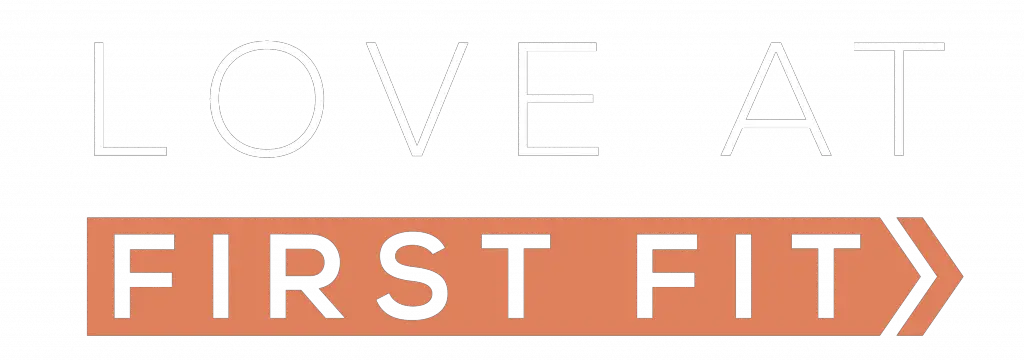A person has to burn 3,500 kcal to lose a pound of weight (not including water weight). Water is 0 calories, so if a typical person on a 2,000 calorie per day diet were to partake in three-day water fast, they would be cutting 6,000 calories out of their diet in food alone.
How Much Weight Can You Lose in a 72-Hour Fast?
Suppose you were to consider their TDEE (total daily energy expenditure), an average of 2,250 calories a day. In that case, it is possible for a person who drinks only water for three days to lose 6,750 calories, or 1.9 pounds of body weight in 72 hours.
| Day | Total Calorie Deficit | Total Body Weight Loss |
| 1 | 2,250 kcal | .64 lbs |
| 2 | 4,500 kcal | 1.29 lbs |
| 3 | 6,750 kcal | 1.93 lbs |
People can do a few things to boost their weight loss results while fasting.
- One is to exercise. Exercise will help the body burn more calories and fat, which can help speed up the weight loss process.
- Another is to drink lots of water. This will help flush toxins from the body and keep you hydrated.
- Using apps like MyFitnessPal will make it easy to track the calories in drinks you consume and help you estimate accurate weight loss results.
- Finally, avoid sugary drinks and foods as they can cause weight gain.
Result to Expect For a 72-Hour Fast (Realistic Expectations)
When undertaking a 72-hour fast, it is important to have realistic expectations about what your body will go through. The first 24 hours are usually the hardest, as your body adjusts to not having solid food.
You may experience headaches, low energy levels, and cravings for your favorite foods.
However, if you can push through the first day, the rest of the fast will be easier.
Your energy levels will start to stabilize and the headaches will subside.
By the third day, you will likely feel light and clear-headed.
Although it is possible to feel hungry during a fast, hunger is usually more of an emotional rather than a physical response.
If you can mentally prepare for the fast and stay focused on your goals, you will be more likely to successfully complete the 72 hours.
How to Get Started with 72-Hour Fast (For Beginners)
Getting started is the hardest part of any weight loss journey. If you’re considering a 72-hour fast, there are a few things you can do to make the process easier.
Know Your Goals
Before you start your fast, it is important to have a clear goal in mind. What do you hope to accomplish? Are you trying to lose weight, reset your digestive system, or cleanse your body?
Once you know what your goal is, you can develop a plan to help you achieve it.
Consult Your Doctor
While fasting can be safe for some people, it is not recommended for everyone. If you have any chronic health conditions or take medication, it is important to speak with your doctor before fasting. They will be able to help you determine if fasting is safe for you and offer guidance on how to do it safely.
Find a Support Group or Friend to Do the Fast With.
Fasting can be a difficult process, both physically and mentally. It can be helpful to have someone to support you during this time. You may want to consider joining a fasting support group or finding a friend who is also interested in fasting. This way, you can help each other through the process and stay on track.
Be Hydrated with Adequate Electrolyte Levels.
As mentioned before, dehydration is one of the most serious risks associated with fasting. For this reason, it is essential to make sure that you are well hydrated before starting your fast. Electrolyte levels are essential to remain hydrated and maintain chemical processes in the body.
Start Slow (Start with 16-Hour Fast)
If you have never fasted before, it is important to start slow. A 16-hour fast is a good place to start. Once you have mastered this, you can gradually increase the length of your fasts. Doing a 72-hour fast all at once can be overwhelming and may lead to setbacks.
A 72- hour fast will allow you to burn upwards of 2 pounds of body mass alone.
72-hour fasting can be a great way to jumpstart your weight loss journey.
It is important to have realistic expectations when completing this fast and to break the fast in the correct way.
How to Safely Break a 72-Hour Fast
When it comes to breaking a 72-hour fast, there are a few things to consider. First of all, it is important to make sure that you are well-hydrated.
- Drinking plenty of water will help to replenish your body and reduce any side effects from fasting, such as headaches or dizziness.
- Secondly, it is important to break your fast slowly. Start by eating small meals or snacks that are easy to digest, such as fruits or vegetables.
- Gradually increase the size and complexity of your meals over the course of a few days.
- Finally, pay attention to how your body feels during and after fasting.
If you experience any negative reactions, such as excessive fatigue or nausea, it is best to consult with a medical professional before attempting another fast.
Breaking a 72-hour fast can be challenging, but by following these simple tips, you can make the process much easier on your body.
Benefits of 72-Hour Fast (Besides Losing Weight)
People often wonder how much weight they can lose in such a short time frame, and what else they can do to boost their results. While fasting for 72 hours, the body breaks down stored fat for energy.
This can help to speed up the weight loss process.
Additionally, exercise will help burn more calories and fat, which can also help with weight loss. Although this is not a recommended way to lose weight, here are some benefits of doing a 72-hour fast:
1. Help Detox the Body
Fasting can help to flush toxins from the body and improve overall health. Additionally, drinking lots of water will help to keep the body hydrated and promote detoxification.
Finally, avoiding sugary drinks and foods during a fast can help to reduce the amount of toxins in the body.
2. Improve Mental Clarity and Focus
Fasting can help to improve mental clarity and focus. This is because practicing the discipline of not eating can help to train the mind to be more disciplined.
3. Boost Energy Levels and Reduce Inflammation
Fasting for 72 hours can help to boost energy levels and reduce inflammation. It can also help your body fine-tune its ability to break down fat for energy.
By skipping breakfast, lunch, and dinner, you are giving your digestive system a break. This can help to reduce inflammation and give your body a chance to rest and heal.
4. Help Improve Gut Health
The body goes through many changes during a 72-hour fast, one of which is improved gut health. This is because fasting can help to kill bad bacteria in the gut and promote the growth of good bacteria.
Is it Safe to Do a 72-Hour Fast?
While there are some benefits to 72-hour fasting, it is important to be aware of the potential risks before embarking on such a fast.
One of the most serious dangers of fasting is dehydration. Without adequate hydration, the body can begin to shut down, leading to organ failure and death. For this reason, it is essential to make sure that you are drinking plenty of water before partaking in a 72-hour fast.
In addition, it is important to monitor your electrolyte levels and make sure that you are not becoming overly depleted.
If you begin to experience symptoms such as dizziness or weakness, it is important to break your fast and seek medical attention.
Another potential danger of fasting is malnutrition. When you do not eat or drink for an extended period of time, your body does not receive the nutrients it needs to function properly.
This can lead to a host of health problems, including weakness, fatigue, and an increased risk of infection.
If you are considering a 72-hour fast, it is important to make sure that you are getting all of the nutrients you need beforehand.
This means eating a well-balanced diet and taking a multivitamin.
Difference Between a 72-Hour and 96-Hour Fast
There are many different types of fasting, but one of the most common is an intermittent fast. This type of fast involves periods of eating followed by periods of not eating, and can last anywhere from 16 hours to several days. A 72-hour fast is one type of intermittent fast, while a 96-hour fast is another. So, what are the differences between these two types of fasting?
The biggest difference between a 72-hour and 96-hour fast is the length of time spent without food.
A 72-hour fast lasts three days, while a 96-hour fast lasts four days. Because you are without food for a longer period of time, your body has a chance to enter into a deeper state of ketosis and burn more fat for energy.

Austin is the author of loveatfirstfit.com and a personal trainer with extensive knowledge in nutrition. Austin is passionate about helping others to find a suitable healthy lifestyle and feel good about themselves. Austin’s goal is to help people push their limits and achieve their physical performance.

